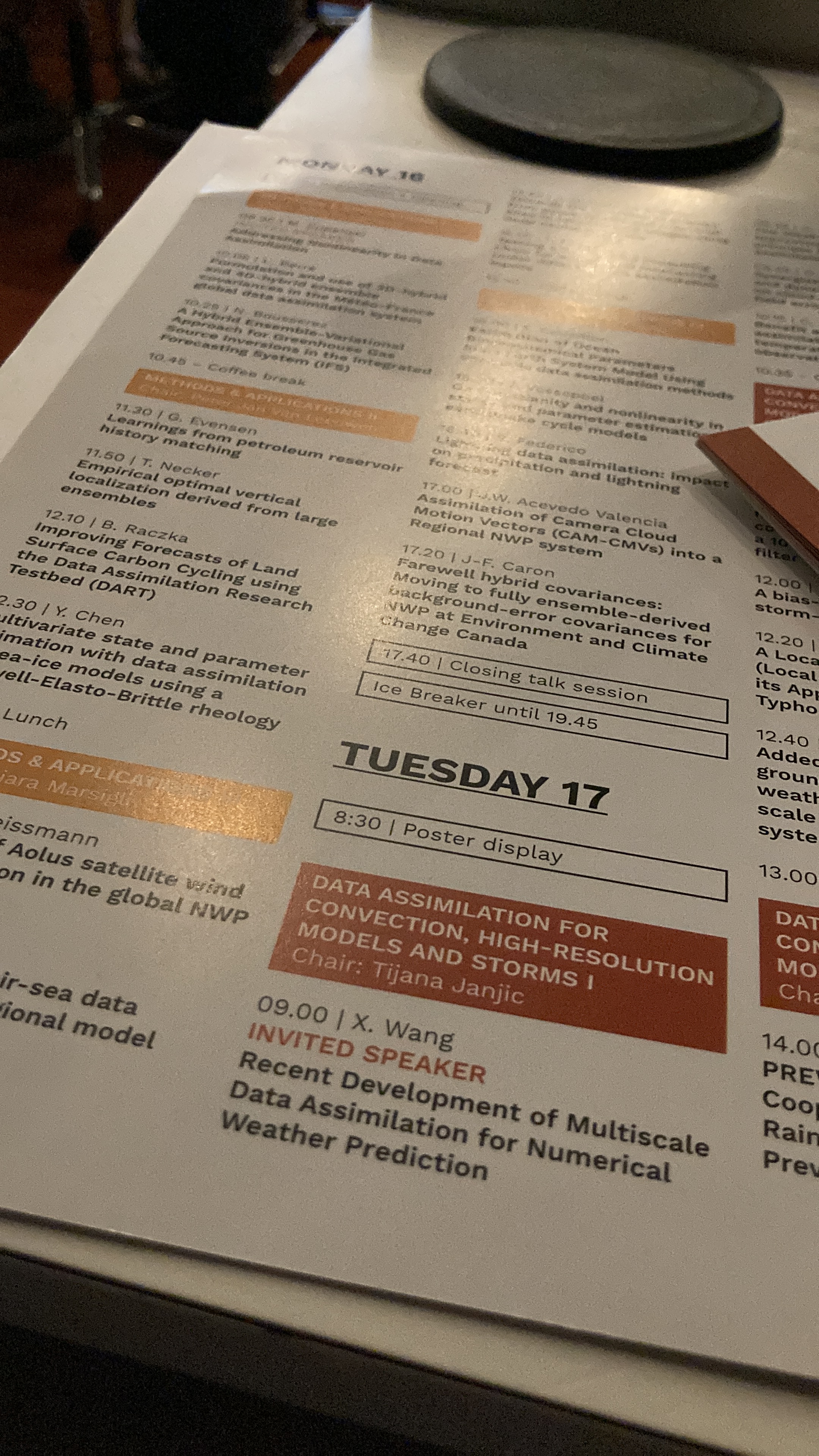Laura Risley – l.risley@pgr.reading.ac.uk
The 9th international symposium of data assimilation (ISDA) was held in Bologna, Italy this October. Firstly, what is data assimilation? Data assimilation is the process of combining observed data with a numerical model. It also considers the errors present in both and produces the best estimate of the current state of the system. Data assimilation is used in various fields such as ocean modelling and numerical weather prediction. As such it has become an extremely important technique with high impact. ISDA is one of the largest gatherings of data assimilation scientists from across the world, and this year’s conference was no exception.


Figure 1: All talks over the course of the week were held in this room. Here is also a snippet of the schedule.
The conference took place over 5 days, each packed full of talks. There were no parallel sessions and so attendees were able to go to all 73 talks during the day! The conference didn’t stop there as there were two posters’ sessions on the Tuesday and Thursday evenings, as well as a gala dinner on the Wednesday evening which we were all invited to. This was held in the Palazzo Pepoli – the museum of the history of Bologna. A unique venue that we were fortunate enough to be able to explore before a delicious meal.
Attendees of ISDA came from various institutions. These included ECMWF, RIKEN, Penn State, The Met Office UK, CERFACS, DWD and many more. It was a truly global affair. The University of Reading was represented by members of the Data Assimilation Research Centre (DARC). Presentations were given by staff – Sarah Dance, Alison Fowler, Yumeng Chen and Ivo Pasmans, whereas PhD students presented posters – myself, Ieuan Higgs and Helen Hooker. The poster sessions were a great opportunity to discuss our work with people from various disciplines, but all interested. I found the experience extremely useful and very enjoyable, despite being quite nervous before the session. Poster sessions are a great chance to not only share your work with others but ask for advice from experts. Although it feels daunting talking to those who are far more experienced in data assimilation, you soon realise that everyone is there to learn and help each other. It is a supportive and friendly environment!



Figure 2: PhD students from DARC presenting posters at ISDA (me, Ieuan Higgs and Helen Hooker).
The conference, centred on data assimilation, covered a variety of topics from parameter estimation in earthquake models; lightning data assimilation; non-linear data assimilation and anchor observations – just to name a few! Machine learning took centre stage this year with researchers highlighting both the pitfalls and the advantages of incorporating machine learning techniques within data assimilation.
The conference has previously been held in various locations such as Reading, Munich and Fort Collins. This year it was held in Bologna, Italy and organised by Alberto Carrassi. Bologna is a wonderful city, full of historic buildings and food. Lots and lots of food. I felt very lucky to have been able to take my first trip over to Italy for the conference.



Figure 3: Some sights from Bologna!
Overall, it was a fantastic week of ensemble Kalman filters, cost functions, covariance matrices, localisation, pizza, and pasta. I learnt a lot about data assimilation; how vast the applications are and how much I still have to discover in the future. ISDA 2024 will be held in Kobe, Japan!